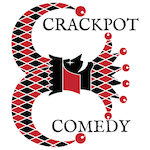Dearest Crackpots,
I feel like a bad teacher because I have held from you some of the most important education I can give you; context. Sure, there is no better way to learn improv than in the flesh, yet there is something to be said for being book-learned (pronounced “Learn-Ed”) as well.
I realize that some of you take improv more seriously than others. That is fine, but I am of the opinion that there should at least be a bare minimum of understanding and education required for all of my students to attain so that they can come close to playing at the same level.
There is no better way to get this context than by reading (although Audiobooks can be a nice runner-up option, and works great while driving your car; we call that the auto-university option)!
First, everyone should have at the very least, a good understanding of the general overview of the subject. There is a fine resource (albeit very incomplete) via Wikipedia. There is one article you should read in its entirety as soon as possible.
Pay special attention to the section entitled: “Structure and process.” As a student of improv at any level, you should at the very least have at least a cursory understanding of this article or you are doing yourself a grave disservice.
It might be good to be aware of this other article on Wikipedia entitled “The Improv”, which is the source of massive confusion in my opinion.
“The Improv” theater does everything EXCEPT improv. Stand-up comedians do not “improvise.” What they do is called “riffing” or “ad-libbing” and it is usually reserved for handling hecklers, adjusting material on the fly to fit timeslots, or when experimenting on new sections of their highly scripted and prepared material. This is NOT Improv. One could make an argument that there have been a few stand-up comedians who do indeed improvise, but they are the exception that proves the rule. Even Robin Williams didn’t really improvise much, because he did it so frequently that it became rote and rehearsed and then he was performing simply derivatives of earlier characters that were at best 50% improvised. Yet, I digress…
To me, this represents either the resulting manifestation of a cultural misperception about what Improv is or at worst it might even be the cause of it:
Can you see why? Stand-up comedy is such a ubiquitous cultural phenomenon. The masses understand this as our modern definition of “comedy” and therefore when I mention that we do improv, the vast majority of the people I talk to think I am asking them to come to an open mic with somebody standing on stage ranting for 10 minutes until the MC has to drag them off the stage. (Sigh.)
Beyond just the questionable busybody writings of people on Wikipedia, there are several books I have gone through that I highly recommend. We often use and reference these techniques in the classes that I teach and it would do you good to start learning the deeper work for your own enrichment.
History and Context Recommendation
Technique and Theory Recommendations
- Truth in Comedy: The Manual for Improvisation by Charna Halpern, Del Close, and Kim Howard Johnson
- How to Be the Greatest Improviser on Earth by Will Hines
- Upright Citizens Brigade Comedy Improvisation Manual by Matt Walsh, Ian Roberts, and Matt Besser
I have several other books on my shelf, but that should suffice for now. In case there are some crazy avid readers out there like me, we can continue nerding out, just let me know if you are interested in a more exhaustive reading list.
Please read that Wikipedia article at the very least and give me your thoughts and ideas! Comment Below.
